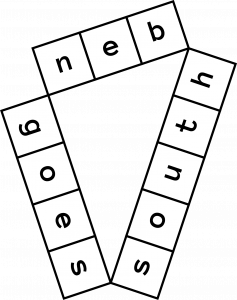
NEBgS Athens - Designing with the landscape
Participation is free.
Click here for prior registration to be able to interact with presenters
Live broadcasting, with no need for prior registration, on the YouTube U.Porto channel.
GMT+3
July 7th
10:45
Entries and Registrations
11:00
Introduction
Welcoming Words
Katerina Sakellaropoulou
President of the Greek Republic
11:10
Welcome Note
National Technical University of Athens (NTUA), Rector of NTUA
Outline of the event
NTUA, Assistant Professor at School of Architecture
University of Porto, Dean of Faculty of Architecture
11:30
Keynote
Inter-local design applied in Santorini
Couvelas Architecture Office, Architect Founder
Over the years, Agnes Couvelas has applied a method tο her design on the island, that she defines as “interlocal”. This diatopic method seeks to harmonize construction with place through design principles with recognized benefits, such as those of ecology (restricting arbitrariness, and proposing options aimed at reducing environmental damage). The practice of architecture, as Couvelas proposes, leads at the same time to the enhancement of diversity rather than uniformity. Interlocality or ‘diatopia’ is a process that reflects the continuity and dialectical “negation” of locality, its transcendence and transition to a new quality of architectural design. It does not reject localities but incorporates them at a higher level. She regards the houses she has designed for Santorini as statements on the ongoing debate on how to achieve balance when building in delicate environments, such as a volcanic corner of the Mediterranean. They attest the search for the proper means to preserve values at risk of disappearance or transfiguration, as well as the principles of passive bioclimatic design through numerous references to the character of the island and its natural and built environment.
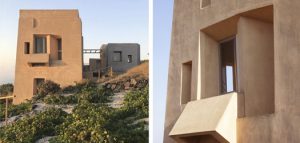
12:00
Keynote
Open city research platform: constructing with the landscape
EPFL Lausanne, Lecturer at the School of Architecture
HEIA Fribourg, Invited Professor
The Open City Research Platform was founded as a collaboration between the Swiss Federal Institute of Technology in Lausanne (EPFL) and the Open City / Corporación Cultural Amereida, a community of designers, architects and poets that has sustained itself on a coastal site near Valparaiso, Chile for nearly fifty years.
Since 2014, this collaboration has brought together students from Switzerland and Chile, in a vertically integrated project, with limited resources and hybrid low-tech technologies, to work on the incremental building of El Pórtico de los Huéspedes (The Threshold of the Guests) for the Open City ; a project that researches conditions for other ways of building and knowledge exchange and broadens our understanding of how the built environment, sustainability and development are linked to a local context.
The Open City Research Platform has as aim the creation of an innovative and interdisciplinary context that makes possible to research on architecture through a pedagogy of making : that positions the university student at the intersection between research and teaching ; questions the boundary between the theoretical and the practical, between the academic and the professional ; involves students in a creative process linked to the material, human and temporal realities of building ; investigates how tacit knowledge is built up and transmitted through experience.
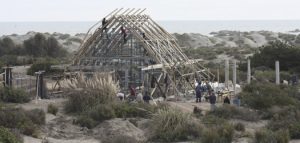
12:30
Virtual Coffee Break
12:45
Discussion Sessions
Interpreting locus: the Philopappou Hill
NTUA, Professor Emeritus at School of Architecture
The presentation will discuss a project which features the wider area of Philopappou Hill, including the Hills of the Nymphs and Muses at the foot of the Acropolis. With the intention to capture and attribute the particular physiognomy of the place, the project investigates three questions:
_how does one confront the relationship landscape-cityscape?
_how does one restore the relationship between ancient and contemporary cities?
_how can one feature the historicity of a place and its transformations through time?
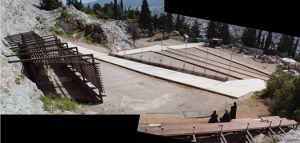
Moderator: Marianthe Papangelopoulou
STUDENTS: Zoi Tzounidou (EL), Federica Lecci (IT), Carlos Machado e Moura (PT), Juan Gómez Verdú (ES), Jana Horvat (HR), Malen Chung (FR)
13:40
Discussion Sessions
Landscape architecture: planning and designing for biodiversity in cities. The case of Porto, Portugal
University of Porto, Associate Professor of Landscape Architecture at Faculty of Sciences
Landscape Architecture is a discipline regarding planning and design of the outdoor space and ultimately the entire landscape. Its approach is particularly needed in the urban environment where human densities call for compensating living spaces rich in layers of ecological, aesthetic and social opportunity and diversity.
Designing with dynamic entities requires an expertise and a focus of its own inspired, facilitated and guided by the functioning of the biophysical systems which are constantly changing with an everlasting cycle of life and death. Access to nature close to our dwellings is a challenge motivated by the multisensory experience of the diversity of life. That is what we are trying to achieve in our tiny contribution through the practice we develop in Porto by planning and designing living spaces to ease human contact with the marvel of biodiversity.
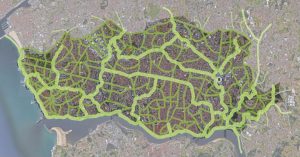
Moderator: Ninou Katerina
STUDENTS: Zoi Tzounidou (EL), Federica Lecci (IT), Carlos Machado e Moura (PT), Juan Gómez Verdú (ES), Jana Horvat (HR), Malen Chung (FR)
14:30
Discussion Sessions
Urban forms, vegetation typo-morphologies and biodiversity in five different residential urban models and epochs in the city of Toulouse
ENSA Toulouse, Landscape Engineer, lecturer and researcher at Toulouse School of Architecture
The research hypothesis is based on the joint evolution between urban forms and vegetation layers to create favorable conditions for the development of a rich biodiversity. The objective is to establish the main principles that generate biodiversity in each of the five urban fabrics. From the scale of metropolitan ecological continuities to the scale of the neighbourhood and urban block, the vegetation morphologies will be analyzed in relation to the urban and architectural forms and correlated with both the plant species identified on site and the ornithological diversity. The transdisciplinary approach involves researchers in planning, landscape architecture, architecture, history, botany and ecology as well as major stakeholders of the Toulouse metropolitan area and professional design studios.
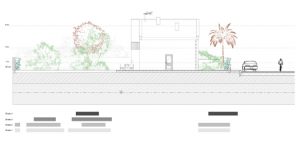
Moderator: Elina Varouxaki
STUDENTS: Zoi Tzounidou (EL), Federica Lecci (IT), Carlos Machado e Moura (PT), Juan Gómez Verdú (ES), Jana Horvat (HR), Malen Chung (FR)
15:20
Recap Session
15:30
Closing
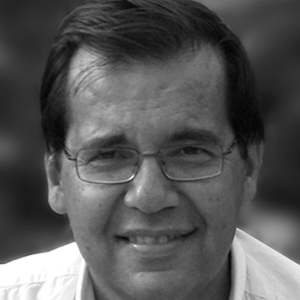
Andreas G. Boudouvis is a Professor in the School of Chemical Engineering (SChE), and is Rector of the National Technical University of Athens (NTUA), since October 2019. He has been SChE Dean (2013-2016), Head of the SChE Department of Process Analysis and Plant Design (2005-2007), Director of the SChE Computer Center (2009-2019) and Director of the Inter-Departmental Graduate Studies Program “Computational Mechanics” of NTUA (2011-2018).
He holds a Diploma from NTUA (1982) and a PhD from the University of Minnesota (1987), both in chemical engineering. He has been a Postdoctoral Fellow at the Minnesota Supercomputing Institute (1989-90), Senior Visiting Research Fellow at the Army High Performance Computing Research Center, USA (1991), Visiting Professor at the Université de Lorraine, Nancy, France (2012), Visiting Researcher at the Fondation de Cooperation Scientifique Sciences et Technologies pour l’Aéronautique et l’Espace, Toulouse, France (2014) and Visiting Professor at the Johns Hopkins University, USA (2018-2019).
Professor Boudouvis teaches undergraduate and graduate courses in Transport Phenomena and Computational Methods. His research interests are in: computational transport phenomena; interfacial phenomena and especially electromagnetic effects at fluid interfaces; nonlinear phenomena including instabilities and pattern formation; multiscale analysis, model reduction and machine learning; large-scale scientific computing.

Panayotis Tournikiotis is the professor of architectural theory and Dean at the National Technical University of Athens, School of Architecture. He has studied architecture, town planning, geography and philosophy in Athens and Paris. His research focuses on critical history and theory, and the way understanding the past may contribute to the interdisciplinary setting of design strategies in architecture and town planning. He has authored and edited many books including Adolf Loos, The Parthenon and its Impact in Modern Times, The Historiography of Modern Architecture, Architecture in Modern Times, and The diagonal of Le Corbusier. He has been active as a curator in architectural events and he contributes on the board of many institutions. His recent work explores the reinvention of the city centre in metropolitan Athens
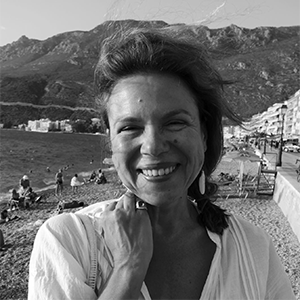
Riva Lava is an Assistant Professor at the School of Architecture of the National Technical University of Athens teaching Architectural Design and Heritage. She is a licensed architect and engineer (National Technical University of Athens / Cooper Union, New York) and holds a Ph.D. in architecture (Aristotle University of Thessaloniki). She has lived and worked in Athens and New York City. She taught design and heritage courses at the Zhejiang University in Hangzhou, China, (2017), the MA course “Art and Architecture in the Black Sea” at the International Hellenic University (2011–13), architectural design at the University of Thessaly (2009–13), architectural and urban design at Pratt Institute New York (1997–98), and communication at the Nafplion Fine Arts School of the University of the Peloponnese (2005–09). She published the book “Santorini Mindscapes” featuring her teaching at NTUA. Riva Lava participated in EU heritage research programs for the preservation of Greek art and architecture (BYZEIS), edited the university textbook “Issues of Cultural Heritage” (2010/2020), and participated at the “Architecture as Icon” project of Princeton University. She has published numerous articles on architecture and has produced a series of shows featuring urban aspects of Athens for Greek Public Television (ERT). She has worked as head of the technical department for the Organisation against Drugs (OKANA) and has been special advisor to the public order ministry on the problems caused in the historical center of Athens due to heavy migrant inflows (2010).
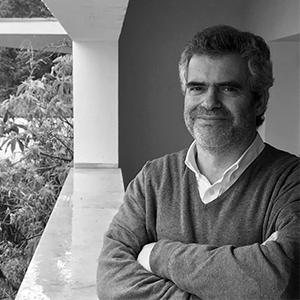
João Pedro Xavier is an architect and full professor at the Faculty of Architecture, University of Porto (FAUP), where he received his degree in 1985, and his Ph.D. in Architecture in 2005.
He worked in Álvaro Siza’s office from 1986 to 1999. At the same time, he established his own practice as an architect.
Xavier is a member of CEAU’s research teams – Architecture: Theory, Project, History (ATPH) – and – Digital Fabrication Laboratory (DFL). The relationship between architecture and mathematics, especially perspective, is his main research interest. He is the author of the books Perspectiva, perspectiva acelerada econtraperspectiva (Perspective, accelerated perspective and retarded perspective) and Sobre as origens da perspectiva em Portugal (About the origins of perspective in Portugal).
He is correspondent editor of the “Nexus Network Journal”, and member of the “European Association for Architectural Education” (EAAE) Council.
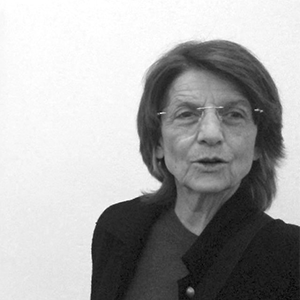
Agnes Couvelas architecture office in Athens, operates in a wide area of applications such as museums, archaeological parks, and private residences. Among her finished projects are the Marathon Tumulus Archaeological Park (realized on the occasion of the Athens Olympic Games), the In-Situ Archaeological Museum in Naxos, The museum of Prehistoric Thera rehabilitation and “The house of the Winds” on Santorini Island. Her implemented studies in urban and landscape design also include the Evriali Ecological Park, and the Agia Triada Public Square.
Durability, livability and energy conservation are primary requirements of her work and are incorporated through specific manipulations to environmentally friendly design of her buildings.
Beginning in 2008, she introduced the concept of Inter-locality to architecture.
She publishes and lectures widely on architecture in Greece and abroad.
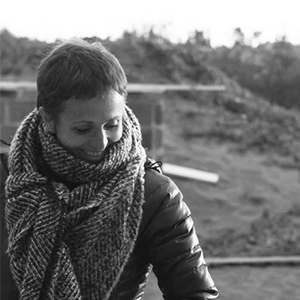
Patricia Guaita is an Invited Professor at HEIA Fribourg and has been a Lecturer at EPFL Lausanne, since 2009, where she is currently co-leading an interdisciplinary research project on textile reinforced concrete construction in collaboration with the FAUFBA in Salvador de Bahia. Since 2013, she is the director of the Open City Research Platform at the EPFL. She is co-editor of Building Cultures Valparaiso (Routledge/EPFL Press). Since 2018, she is doing a PhD at the CEU in Madrid, Spain. She studied in Madrid and Venice and received her architecture degree from the ETSAM in Madrid.
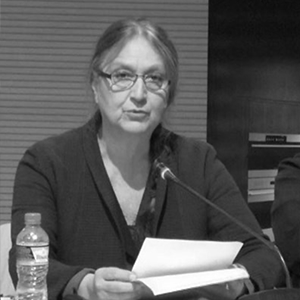
Bouki Babalou-Noukaki, Architect and Professor Emeritus of NTUA. Born in Thessaloniki, graduated from the School of Architecture of NTUA in 1970. Since 1970, she has worked with Antonis Noukakis on private and public projects, with emphasis on libraries and open public spaces.
She has won 30 architectural competitions, among them three international and five for built works. She was a member of ‘Atelier 66’ between 1972 and 1986. From 1971 until 2013, she taught Architectural and Urban Design at the School of Architecture of NTUA.
She recently published the book “8+1 Essays on Architecture and the City”. Her work “Library School of Philosophy” has been nominated for the Mies Van Der Rohe Award 2022
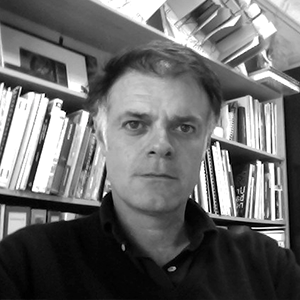
Paulo Farinha-Marques is Associate Professor of Landscape Architecture, Faculty of Sciences, University of Porto, Portugal. He graduated in Landscape Architecture at University of Lisbon (1988) and got a PhD in Landscape Architecture at the Faculty of Architectural Studies at the University of Sheffield, UK (1999).
Since 1996, he has articulated university teaching with the production of landscape architecture projects at various scales. His main areas of interest are the planning and design of outdoor public spaces, biodiverse, sustainable and inclusive (parks, gardens, garden squares, tree-lined streets, recreational woodlands and green corridors).
He publishes on landscape architecture design projects, urban biodiversity, green structure and landscape; he creates and details landscape design projects, most of them implemented on site. He currently coordinates a special landscape, rich in designed outdoor spaces and cultivated biodiversity: the Botanical Garden of the University of Porto.
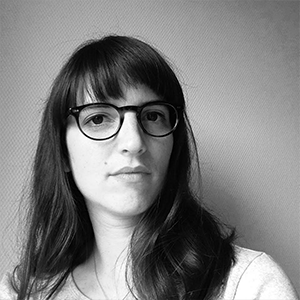
Anaïs Leger-Smith is a Landscape Engineer working as a lecturer and researcher at the Toulouse School of Architecture, France. She has a Masters in Landscape Planning and Engineering from Agrocampus in Angers (France) where she undertook her PhD in Urban design & planning and holds a Masters in Urban Planning from the Ecole d’Urbanisme de Paris. She initially worked in design studios in Brussels, London, Bristol and New Zealand. Her research interests focus on ecological landscape design, metropolitan landscapes and territories, participatory urbanism and landscape imaginaries. She is a permanent editor for the article section of the Journal of Landscape Architecture JoLA and an executive member of the European Council of Landscape Architecture School. She is the Vice-President of the French Federation for Landscape Architecture (FFP) in Occitanie and an Academic Member of the British Landscape Institute (AMLI).
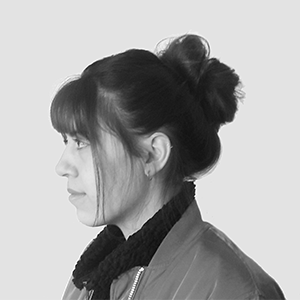
Marianthe Papangelopoulou (1993) is an architect based in Athens. She holds an integrated Master’s degree in architecture by the National Technical University of Athens and a Master of Science degree in architecture and urban design by TU Delft (The Berlage Post-master in Architecture and Urban Design). She is currently part of the NTUA research team for the “Social Platform for Holistic Impact Heritage Assessment” (SoPHIA) program. She has worked on diverse projects ranging from housing to public use complexes. Together with Antonis Papangelopoulos and Yannis Mantzaris she participated in ENYO, an interdisciplinary collaboration focused on architecture and spatial research.
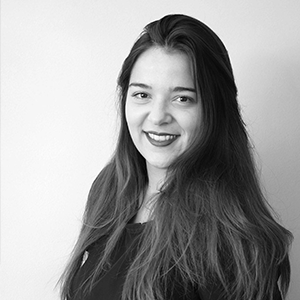
Ninou Katerina is an Architect Engineer, graduated from NTUA in February 2020, and has attended architecture courses at Escuela Técnica Superior – Facultad de Arquitectura of University of Seville. She has collaborated during the last two years with architectural offices Aspect Architects and Karadimas & Associates, and has been active in the Cyclades islands and the Southern Suburbs of Athens. She recently organised an exhibition of thesis projects for the island of Milos in collaboration with the Municipality of Milos. At the same time, she researches the Cyclades in relation to their folklore, bioclimatic design, locality and cultural heritage. She has participated in research projects on the architectural heritage and resilience of cities with a number of foreign universities, including Leibniz University Hannover, ENSA Nancy, ETSA Sevilla, UNIFI DIDA Firenze and others.

Elina Varouxaki is currently working in an architecture practice in Athens after graduating NTUA school of Architecture and studied a semester in the Bauhaus-Universität Weimar, participating in the development of the urban ring of Leipzig. She has curated performances, radio shows exploring the urban public space and participated in a wide range of design projects, individually and in collaboration, spanning from furniture pieces to renovation of preserved buildings while in each project experimenting with a range of different materials. She finds interest in the housing problem as posed in different eras in Europe and investigated this in her thesis Realistic Utopie, exploring how absent elements of co-housing can be transcribed in the Athenian context. The theoretical research extends to findings of undiscovered essays of 1960s Greek architect D.Pikionis in a Medieval fortress in Rethymno, published both online and in paper investigating how the tourist narrative is transformed.
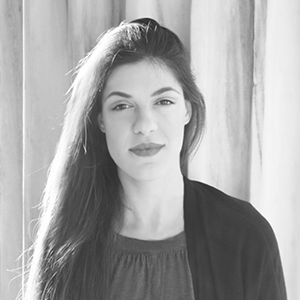
Zoi Tzounidou was born in northern Greece and attended Anatolia College Boarding School in 2003. She lived in Munich and Hamburg for five years and started studying Architecture at the Technical University of Munich. During the period 2011-2017 she attended the National Technical University of Athens, School of Architecture, where she graduated with distinction and continued her studies in the postgraduate program “Research in Architecture: Architectural Design – Space – Culture”. Part of her research work received honours from the Fundació Mies van der Rohe, Mimar Sinan Fine Arts University and was exhibited by the National Bank of Greece’s Historical Archive. Alongside the academic records she has been working as an associate architect with architecture practices and researchers in Greece and Germany.

Federica Lecci is a student of Architecture at the University Alma Mater Studiorum of Bologna, Campus of Cesena. The university courses that impacted the most her vision of architecture are: aesthetics, theory of history and restoration, urban planning laboratory and architectural design laboratory IV. She had also participated in many external courses like: Course of Architecture, design, and urbanism “Designing with empathy”; Course of 3D printing press 4m group; Architectural Workshop “LURT” (Laboratorio Umano di Rigenerazione Territoriale) instructor: Flora La Sita and Orizzontale studio, location: Riesi, Sicily. Now she is training at the international studio “DECISIO” in Amsterdam.
She is passionate about urban planning with a multidisciplinary approach and is interested in every form of art that seeks to contribute to the construction of a more equitable world. Other skills: scout educator, dancer and ex competitive skater. She is able to speak Italian, English and Spanish.
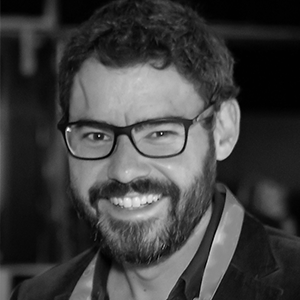
Carlos Machado e Moura is an architect (FAUP, 2006), postgraduate in Architectural Heritage (CEAPA-FAUP, 2013), PhD candidate (PDA-FAUP/FCT, 2015) and an integrated researcher at CEAU-FAUP. He lectured at the University of Florence (2009/10), integrated research projects on urban regeneration, and practises as an architect since 2008. Author of books like “Building Views” (2017) and “Casas Quinhentistas de Castelo Branco” (2008), Carlos was a member of Jornal Arquitectos’ editorial team (2015-19), and the assistant curator of the “Physics of Portuguese Heritage” exhibition (DGPC, 2019) and the OpenHouse Porto initiative (2016). He co-organized activities on drawing and the city (2016-18) and he is currently a Working Group leader of COST Action CA18126 “Writing Urban Places” (2019/23) and a researcher of “(EU)ROPA – Rise of Portuguese Architecture” (CES-UC, 2018/21). In 2020 he was a recipient of the Prémio Távora award and of an honorable mention of Premio Architetto Italiano.
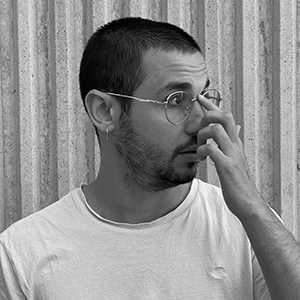
Juan Gómez Verdú was born in Valencia, on 21st July 1995, where he currently lives. In 2014, he started his degree in Architecture from the Polytechnic University of Valencia. In 2018, thanks to Erasmus scholarship, he went to the Hafencity Universität in Hamburg. By the fifth year, he started to become interested in educational spaces and their relation with the learning process itself. He is currently enrolled in a Master in Architecture at the Polytechnic University of Valencia with research about Higher Education and Architectural Educational spaces, formal and informal learning. He has submitted some works to architectural magazines, and worked for several years as a graphic and 3D design artist. Lately he has started working in a landscape and urbanism studio in Valencia.
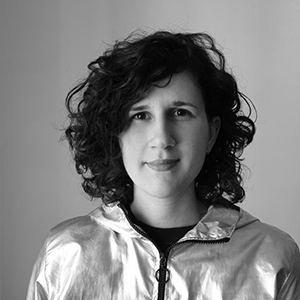
Jana Horvat (Zagreb, 1993) is an architect and researcher currently working as a teaching assistant at the University of Zagreb Faculty of Architecture, where she graduated with highest honours in 2019. Since 2020 she has been enrolled in the PhD programme “Architecture and Urban Planning” at the same Faculty. During her studies she was awarded the Dean’s and Rector’s Awards. She regularly takes part in architectural and urban planning competitions and has been awarded several prizes within various teams of collaborators, most notably the 1st prize in the international “Europan 15: Productive Cities” competition for the location of Karlovac (CRO).
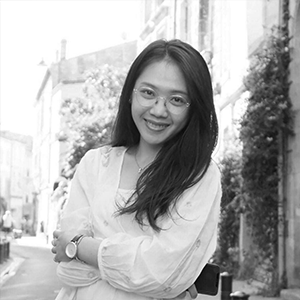
Malen Chung is a PhD candidate in architecture and urban heritage conservation study at Architecture Research Laboratory of National School of Architecture of Toulouse, France. Her doctoral research focuses on Large scale architecture preservation of Sangké River within Battambang territory in Cambodia using Landscape preservation approach. Prior to starting her doctoral studies, she taught about Architecture Science at Limkokwing University in Cambodia and has been Assistant Lecturer in Architecture Workshop and Architecture Conservation courses in Royal University of Fine Arts, Cambodia.
Malen was born and raised in Phnom Penh, Cambodia. She obtained her Bachelor of Architecture and Urbanism in Royal University of Fine Arts in 2016. Upon completion of her degree of architecture she went straight to Malaysia to pursue her Master Degree in Science Building Technology in University of Sains Malaysia. Four years of involvement in both educational and preservation / restoration of heritage buildings, she has always been fascinated with urban conservation and development and landscape areas.
Malen PhD thesis topic is “Sangké River Large Scale Heritage Conservation in Battambang, Cambodia from the scale of territory to the scale of architecture” advised by Professor PhD Rémi Papillault and co-advised by Dr. Men Chandévy.